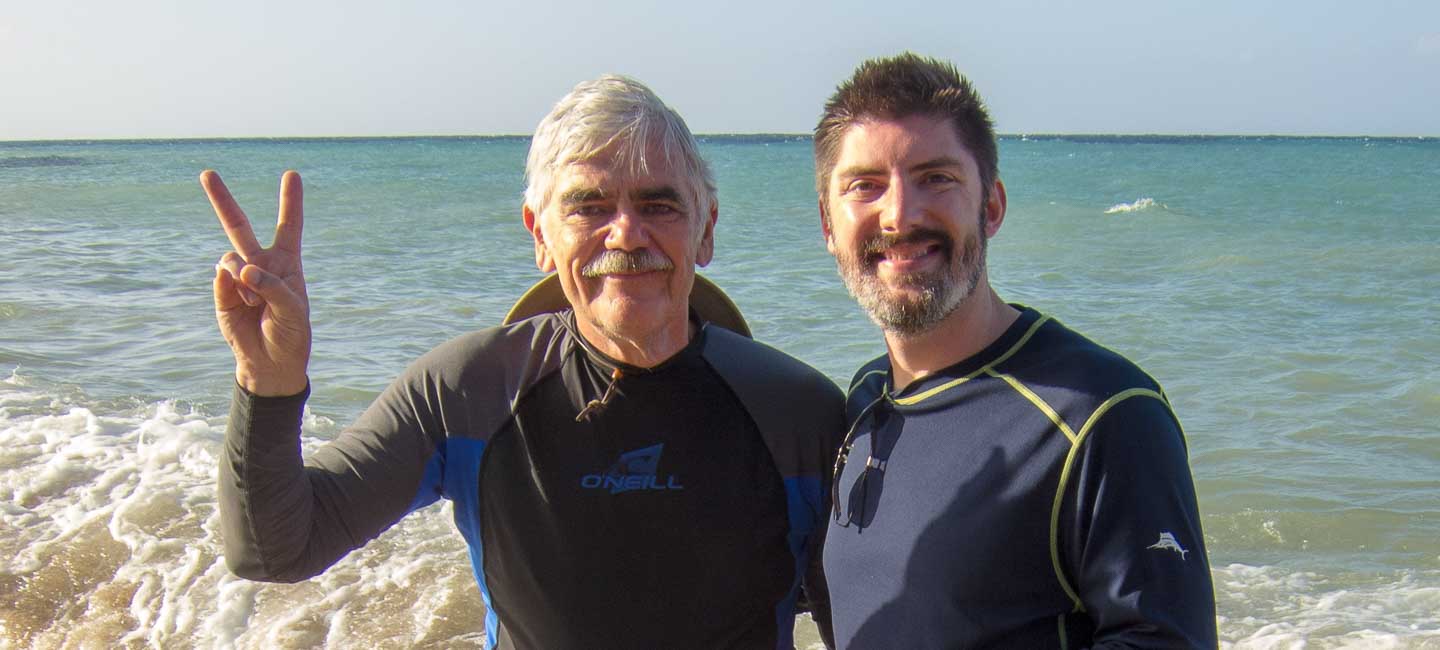Father’s Cancer Battle Inspires Son’s Research
When Fred Locke was a Michigan teen watching his father, Fred, battle cancer, he had a feeling the experience would shape his future. But few would have been able to predict it would lead to a career at Moffitt Cancer Center and a pivotal role in studying CAR T-cell therapy, the most impactful cancer research development of 2018.
CAR T is a treatment that uses a patient’s own white blood cells which have been genetically reprogrammed in the lab to fight their cancer. Late last year, the U.S. Food and Drug Administration (FDA) approved the use of one type of CAR T called Yescarta™ to treat adults with diffuse large B-cell lymphoma who have relapsed repeatedly on standard therapies. In January, the American Society of Clinical Oncology named CAR T as its Advance of the Year in its annual report on Clinical Cancer Advances 2018.
The nationwide clinical trial that resulted in Yescarta’s FDA approval was co-led by Fredrick Locke, M.D., now a medical oncologist and translational scientist in Moffitt’s Department of Blood and Marrow Transplant and Cellular Immunotherapy.
It was his father’s experience that spurred Dr. Locke’s commitment to clinical research. Just 15 when his father was diagnosed with a different form of lymphoma, he watched many rounds of chemotherapy fail before his father was enrolled in a phase 2 clinical trial for an immunotherapy drug called Bexxar.
Decades later, he remains in remission.
The experience became a motivating factor behind Dr. Locke’s career choices. “I’m very passionate about helping cancer patients and their families deal with the ordeal of a cancer diagnosis. Not only did I see how horrible cancer is,” he reflects, “but I could see how clinical trials can actually make a difference for people who are without other options.”
The latest results from the clinical trial of 108 patients showed 42% continue to have ongoing remission after just one CAR T-cell infusion, and 40% of patients have no evidence of cancer at a median follow-up of 15.4 months. More than half of the patients enrolled in the trial are alive at 15.4 months, whereas median survival is about 6 months with existing therapy.
For Dr. Locke, whose father is alive thanks to a clinical trial, these studies in some way bring him full circle.
“To open the door to future cellular immunotherapies that can be brought to patients across the world has been an amazing opportunity,” he says. “Great teamwork has led to the success of this trial and others like it. Here at Moffitt we've come together and worked across departments in order to make it happen, so that we can bring these therapies to our patients.”
Moffitt now offers two FDA-approved CAR T therapies to its patients and continues to research new forms of CAR T for use with other cancers.


